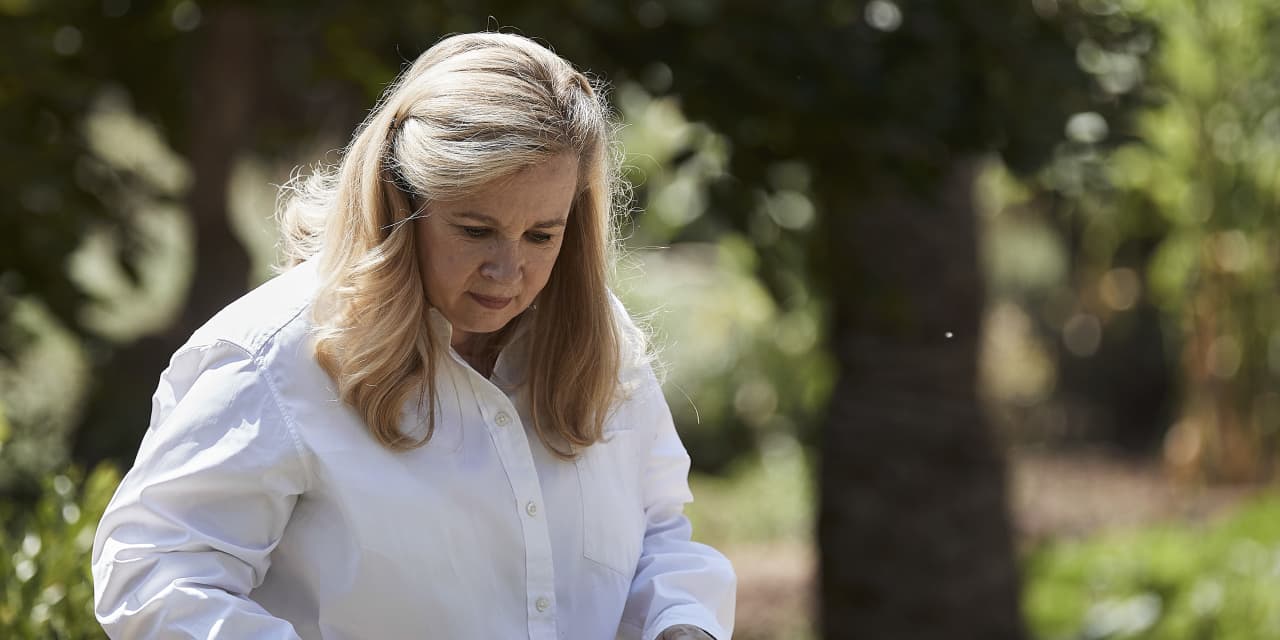For Hélène Darroze, with six Michelin stars and a fleet of high-powered restaurants on her ledger, it would be easy to stay in her comfort zone.
She could keep doing what’s worked so well for so long and play to her established strengths. But by opting to join the revamped culinary team at Royal Mansour Marrakech and stewarding the famed La Grande Table Marocaine, she has pivoted hard in the other direction.
“I had light in my eyes when I heard about the opportunity to work for the Royal Mansour, this amazing place in this amazing kingdom,” says Darroze, 56. “The challenge was very exciting, needing to push yourself to be better, and working with authenticity, with respect and with generosity.”
It’s Darroze’s first project outside of Europe, and not only is she tackling a different cuisine, she’s doing so in the spotlight of a luxury hotel that was founded by Morocco’s
King Mohammed VI
as a personal passion project, an opulent, palatial property consisting entirely of multi-story riads as guestrooms. She’s also stepping into the shoes of the legendary Yannick Alléno, who has 12 Michelin stars himself, and who held the position for the prior dozen years.
“I knew the work Yannick did here, and for him, he said it was the end of his story, and then he sent me a text saying I cannot dream of anyone else other than you to take over after me,” Darroze says. If anyone believes she’s dreaming though, it’s her. “I fell in love with this project, and I don’t like the title chef—I prefer cook—and for a cook, this is just a dream.”
In addition to spearheading La Grande Table Marocaine, Darroze is taking the reins of La Table, the more in-her-wheelhouse French restaurant that serves as the Royal Mansour’s main eatery. She’s also involved with the hotel’s new cooking school, where guests have the opportunity to learn firsthand about the intricacies of Moroccan flavors.
Darroze spoke with Penta about embracing a new challenge in her career, as well as her education in the world of Moroccan food, flavors, and culture.
PENTA: How well did you know Morocco and its cuisine before joining the team at Royal Mansour?
Hélène Darroze: Morocco was not a country I knew very well. Instead, it’s been a discovery. For the moment, I’m learning a lot as I start this experience at La Grande Table Marocaine. But it’s super exciting for me, it reminds me of being a young girl when I started to learn my job, joining Alain Ducasse in Monaco. It’s something I’ve lost, this excitement to learn from other people. A culture, a way to cook, the products, the spices, this is so exciting for me.
What are some of those challenges that you’ve encountered thus far?
It’s not creating a restaurant from scratch here, so instead I need to bring a spirit to a team to work together and to work toward a goal. That will take time.
Before making the decision to come here, I was really worried about the matter of sustainability, and I didn’t know the policy of the Royal Mansour. I had a big conversation, and this point of sustainability was very important for me. We spoke a lot about that, and I could see we were on the same page. There’s a lot to do, but we have the same vision and we will improve on that. Sustainability is also with people. It’s very important to me that the team is working in good conditions, and it was one of the big points for me to come here.
Describe some of the learning experiences you’ve had as you’ve begun exploring Moroccan cuisine.
One day for lunch, a younger Moroccan chef told me she would welcome me at her home to introduce her mom to me because she was sure she could teach me so much. This has now happened on several different occasions. Then, the last time I was in the medina, I stopped into a place where all the families bring their bread to a wood-fired oven to bake. And I started to speak to the guy in charge, and I could see he had a tagine on the side, and he told me he preferred his tagine to be made with lamb brain. And I said, ‘oh my god, I need to see that!’ That’s something I love. So I asked him if one day I could come with him to see how he cooks it, and that will be one of the next experiences. I’m planning to travel to Fez, Tangier, in the south, to learn from everywhere and from everyone. Preserved lemons, spice mixes—there are so many flavors that I love and will put at the heart of La Grande Table Marocaine. You want the citrus, you want the herbs and spices of Moroccan cuisine.
Morocco is regarded as having one of the world’s largest gender equality disparities. What have you seen in the kitchen so far?
I was really surprised to find that there were some women chefs, maybe even more than in Paris or London at the moment. I was very happy to see that. It was a very good surprise to find women running the restaurant, and women that we want to promote to important positions. I don’t have that even in all of my other restaurants. They are respected, and they are here in numbers and in quality.
What have you learned about Moroccan culture via its food?
For me, Moroccan cuisine is about the mother. I had an experience in the Atlas Mountains where I learned to make couscous, and it is something I will remember forever. It’s the feeling of being with your grandmother and starting from nothing and learning everyday. It was all around the grandmother, and her daughter-in-law cooked with her as well as the grandchildren. And when we shared the lunch, my daughters were there as well. It was a really strong moment. I could see that cooking was all about women here. I could see, in fact, the importance of women in this society—perhaps there is not as much equality, but I consider the importance of the mother at home. She is the center. The respect of the mother, the respect of the women at home, that was very important.It reminds me of when I was a child, I lived in the countryside with a big family, and I remember there were some important times of the year, for example, when we would harvest my uncle’s little vineyard and prepare a big feast. The wine was terrible, but it was a great time and family gathering. As a child they brought me and I learned so much about what they cooked traditionally. They gave me all the information to do that again, and I had the feeling when I was in the mountains here that it was the same story.
This interview was edited for length and clarity.
Read the full article here













